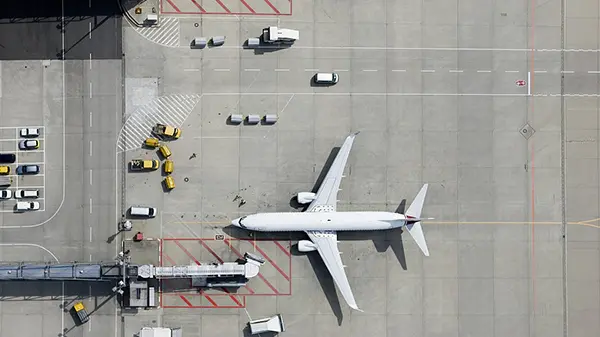03:54

The COVID-19 pandemic has already cost the global tourism industry at least 22 billion U.S. dollars based solely on reduced travel by the Chinese, and these losses could double in the coming months, according to the estimates from the World Travel Tourism Council (WTTC).
WTTC, which represents the private travel and tourism sector with over 200 CEOs as members, said that while it was too soon to put a final tally on the potential losses, the organization said that based on previous outbreaks, the impact could be to the tune of 50 billion U.S. dollars.
"The impact of SARS (2003), the impact of H1N1 (2009)... was around 50 billion U.S. dollars to the economy."
"But at the same time, back then, China was not as important and was not that big in travel and tourism. And because of the importance of the Chinese travelers to the world, we believe the impact is going to be greater than that (50 billion U.S. dollars)," WTTC's CEO and president Gloria Guevara Manzo told CGTN's BizTalk.
The outbreak, which started in December 2019 in China, has already forced the cancellations of thousands of flights, events and closure of tourist attractions worldwide. The increasing number of countries imposing varying degrees of travel restrictions is also expected to hit the 8.2 trillion-dollar travel and tourism industry hard.
The WTTC estimates that the travel and tourism sector contributes 10 percent of the global GDP. Its research also estimates that the sector supports one in ten jobs around the planet, and makes up about 320 million jobs.
WTTC's latest figures show that the adverse impact could reach up to 25 percent in 2020, equivalent to a loss of three months of global travel. This puts up to 50 million jobs worldwide at risk, leading to a corresponding reduction in jobs of between 12-14 percent, said WTTC in a media release this month.
WTTC: Do not panic, do not cancel
Cautioning against disproportionate or irrational fear, Guevara said that the World Health Organization estimates that 90 percent of economic impact from such outbreaks is not related to the viruses themselves but the decisions made in relation to them.
"We need to take all the measurements to try to reduce as much as we can to contain the spread. But at the same time, we also need to understand the domino effect that some of these decisions can have. And the implications of that. We are against travel bans. We're against some of the decisions of closing borders. We are against stigmatization, for instance," she said.
"We have some recommendations: do not panic, do not cancel. If you are not feeling comfortable traveling, what if you delayed your trip? Let's think about it," she continued.
Guevara said that considerations should be given to small businesses that are part of travel and tourism industry that may be hit by a double whammy - from the cancellation of trips and loss of revenue.
However, Guevara said that the sector is one that is resilient.
"We have analyzed outbreaks, 11 outbreaks from the past. This is the most resilient sector," she said.
Guevara said that a full recovery may take 10 months, or even less, depending on the actions taken by private and public entities. She said WTTC recommends stronger partnerships between governments and the sector's players.
"We're anticipating that this is gonna be less than 10 months from the recovery. And again it's going to be depending on regions and countries if the governments are stepping up and helping us... that time frame from 10 months can be reduced," she said.
She said these measures included fiscal incentives, travel facilitation such as simplifying visa processing, removing barriers, and reducing taxes.
 简体中文
简体中文




